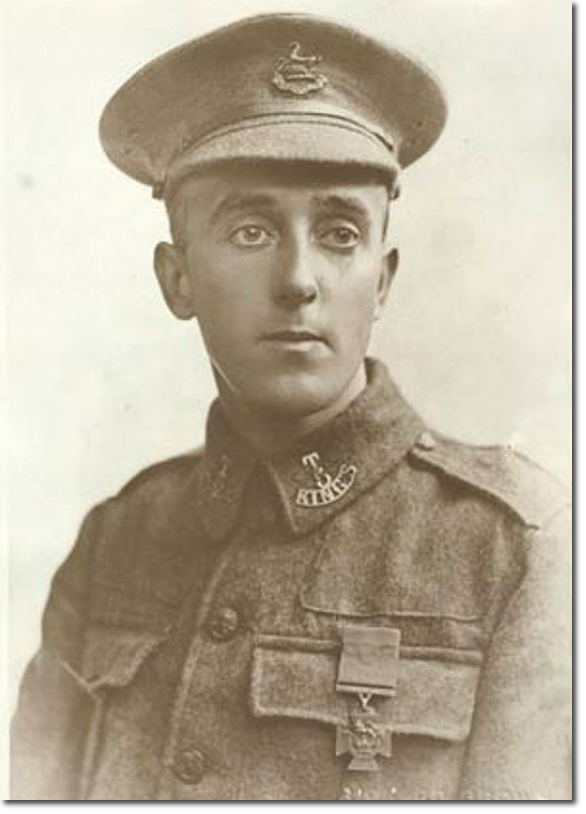|
|


|
|
On 4 June 1916 Private Arthur Procter was with the 5th Battalion at Ficheux, south of Arras. A trench raid in the early hours had gone disastrously wrong when some of the British artillery fire that was meant to cut the German barbed wire, had fallen short and landed among the raiding party. The survivors returned to the trenches but were forced to leave the dead and wounded in no-man’s land. Procter could hear the groans of the wounded and after a while could stand it no longer. He had to either run away and risk court marshal, or go to the wounded men.
He noticed some movement on the part of two wounded men who were lying in view of the enemy about 75 yards in front of the trenches. He at once went out on his own initiative and, although under heavy fire, ran and crawled to the two men, got them under cover of a small bank, dressed their wounds and promised that they would be rescued after dark. He left them with warm clothing, and then returned to the trenches, again under fire. The men were rescued at dusk. Arthur Herbert Procter was born in Bootle on 11 Aug 1890, one of five children. His father lost his job and turned to drink, becoming aggressive towards his wife and to Arthur. Young Arthur went to live with his uncle and great aunt in Exeter, but returned to Liverpool and worked in the provisions trade from 1904 to 1914, then joined the army at the outbreak of war. He was wounded on 14 May 1915 in the area of Bethune. Following his act of bravery in June 1916 he was recommended for the Victoria Cross, gazetted on 5 Aug 1916. He was presented with his medal by King George V on the battlefield, in the presence of Sir Douglas Haig and General Joffre. He was granted leave in August 1916, and on his return to Liverpool he received a hero’s welcome. He was officially welcomed by the Lord Mayor of Liverpool at his battalion headquarters. Having been carried shoulder high from the HQ he proceeded to the Liverpool Produce Exchange where he was presented with a gold watch, a cheque for 100 guineas and 100 pounds War Loan. Having fought with the 5th Battalion throughout the war he was discharged in 1918, and after an illness returned to his work in the provisions trade. Later he took Holy Orders at St Aidan’s College, Birkenhead, and in 1927 was ordained deacon at Liverpool Cathedral. At the outbreak of World War Two he was vicar of St Stephens in Hyde, Cheshire. In 1941 he joined up again, this time as chaplain in the RAF. He returned to civilian life in 1946 and spent time as vicar in many parishes as far apart as Manchester and Devon. Arthur retired in 1965 and was living in Sheffield when he died on 27 Jan 1973. He was married to Hilda May Codd on 23 May 1917 at St Paul’s Church, Tranmere. They had four sons. Hilda died in 1983. His medals sold at Glendinnings in 1990, for 18,700 pounds, and are now in the Regimental museum. |
Armed Forces | Art and Culture | Articles | Biographies | Colonies | Discussion | Glossary | Home | Library | Links | Map Room | Sources and Media | Science and Technology | Search | Student Zone | Timelines | TV & Film | Wargames